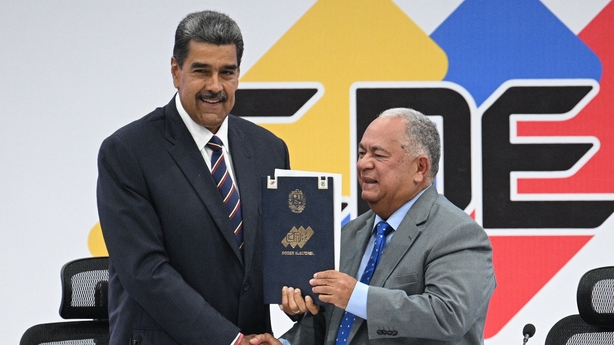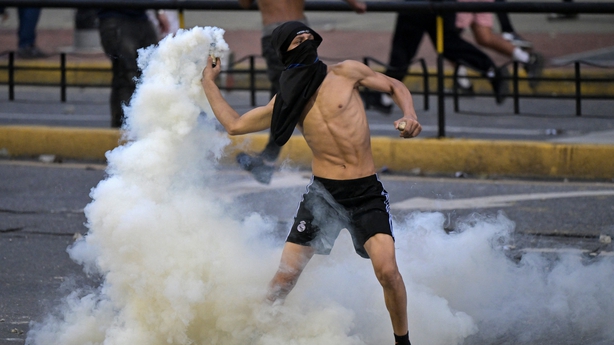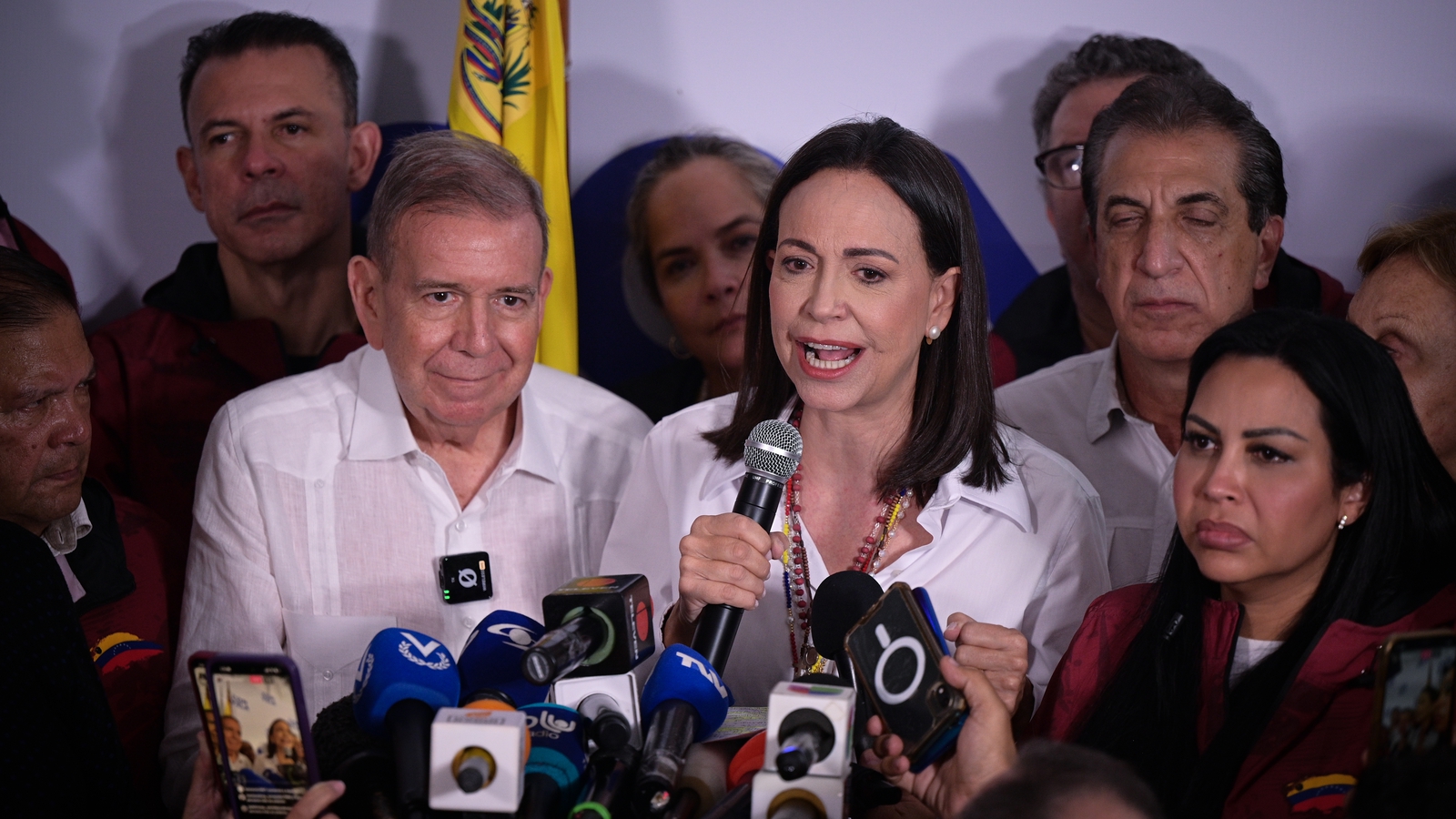Venezuela’s opposition leader Maria Corina Machado said she had the means to “prove” victory in presidential elections that incumbent Nicolas Maduro claims to have won.
Having had access to over 70% of voting records, she said, the data clearly showed that the next president “will be Edmundo Gonzalez Urrutia,” who took Ms Machado’s place on the ballot after she was barred by Mr Maduro-aligned courts.
Venezuela’s national electoral council (CNE) said just after midnight that President Nicolas Maduro had won a third term with 51% of the vote, without providing detailed tallies. It blamed a cyber-attack launched from North Macedonia for a delayed count.
Mr Maduro dismissed the opposition and pollster concerns as a coup attempt after the CNE formally proclaimed him the president-elect for the 2025-2031 term.
Acts of violence and denial of the official results could be considered crimes of “public instigation,” attorney general Tarek Saab said.
PARTIAL TALLIES
Witnesses assigned to observe vote counts have a right to a copy of each voting machine’s tally under Venezuelan law.
However, Ms Machado said in the early hours of Monday that the opposition had only been able to get about 40% of the voting records. Some witnesses were blocked from following counts and at other sites the tallies were not printed, opposition official Delsa Solorzano said late on Sunday.
Observers from US nonprofit the Carter Centre called on the electoral authority to immediately publish the results by polling station. At least one other group of foreign observers was also pushing CNE behind the scenes for those records, said a person with knowledge of the count on condition of anonymity.
Brazil’s Foreign Ministry, which restored diplomatic relations with Venezuela last year, said releasing the detailed vote tally was “indispensable” for the “transparency, credibility and legitimacy of the election result.”

The United States went further.
“By engaging in repression and electoral manipulation, and by declaring a winner without the detailed precinct-by-precinct polling results, Maduro representatives have stripped the supposed election results they announced of any credibility,” a senior Biden administration official told reporters.
Tallies from observers who were able to accompany the vote count backed up the accuracy of the exit polls, said Ricardo Rios, head of the Poder & Estrategia analyst firm in Caracas.
“The most important thing is that the records confirmed the proportions seen in the exit poll,” he said.
Mr Rios said his firm’s exit surveys outside traditionally pro-government voting stations showed the opposition winning even in those Mr Maduro strongholds, lending more credence to pre-election surveys that had Mr Gonzalez ahead by a margin of at least 30 percentage points.
Mr Gonzalez said he was not calling supporters to the streets, but there were peaceful pot-banging protests in traditionally ruling party areas of Caracas, followed by larger protests in the afternoon at several locations around the country, at least one of which was dispersed with tear gas.

There were also isolated incidents of violence at some polling stations overnight, including a scuffle in Caracas witnessed by Reuters reporters, blamed on so-called “collectives,” ruling party motorcycle riders known for harassing political opponents.
An armed collective was blamed for the death of one-man near a polling station in the border state of Tachira late on Sunday.
Collectives proliferated and expanded throughout the 2010s and opposition lawmakers have reported receiving threatening messages signed by them.
A leader of one such militant group told Reuters in 2019 that he and other collectives were expanding their networks of informants to alert police of suspicious activity and send them addresses of what he termed “right-wing conspirators.”

